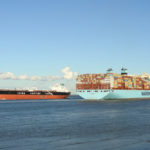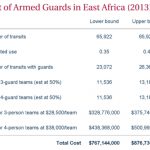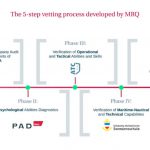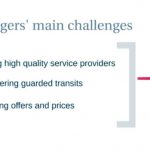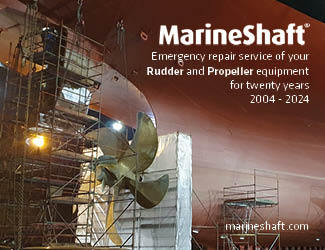Apart from the improved situation off Somalia, piracy is a big problem in other regions. In order to select an appropriate provider of armed guards, Marine Risk & Quality (MRQ) launched its online platform Octopus
The new portal provides a streamlined service where ship managers can select and contract a certified PMSC (Private Maritime Security[ds_preview] Company) of their choice via a private and secure bidding process.
Over the last years, Somali pirates have successfully been kept in check. However, the apparent harmlessness of Somalian waters is deceptive. Piracy’s origins, the political and social instability in the region as well as the financial potentials, still prevails. Thus, if vessels reduce their vigilance and security measures, piracy will quickly flourish again and incidents will increase up to previous levels. By looking at piracy figures in West Africa and the Far East we see a steady increase in activities.
Reasons for less piracy incidents around Somalia
The core factor of success in combating somalian piracy beyond the presence of the international Navy coalition forces is the deployment of armed guards on board of merchant vessels. According to Oceans Beyond Piracy, in 2013, between 35 and 40% of almost 66,000 transits in the region were conducted with armed guards.
Despite the phenomenal success rate, there are potential pitfalls while using armed guards. The market for maritime security is still young and partially immature. A huge number of new PMSCs have been founded around the world. At the same time, prices for armed security services on vessels dropped in recent years. Especially, European PMSCs struggle with higher operating expenditures in comparison to their Asian competitors. In addition to that, various compliance and quality problems have been reported among several low-cost providers. The result of these developments is an intransparent market with huge gaps between prices and quality and a growing uncertainty within the ship manager community. The recent insolvency of a well-known Maltese PMSC proved this feeling to be well founded. Thus, the quality of operational personnel is of great importance. Due to general market pressure some PMSCs seem to have a tendency of high fluctuation of operational personnel, depending on how price sensitive or inattentive the client is. Especially in recent times low quality armed guards seem to float the market. The only way to tackle the problem is by applying an in-depth vetting system focusing on the operational personnel.
MRQ has developed a unique five-stage vetting process for PMSCs and their operational personnel. In addition to a systemic company audit according to ISO 28007, the psychological abilities, operational and tactical skills as well as nautical and technical capabilities of the operational personnel are verified. The vetting process is concluded by an on-board performance audit.
In order to make the quality vetted PMSCs available for shipping companies Octopus has been designed. This web-based program provides the ship manager with an instant overview of suitable security providers at the touch of a button and enables him to receive tailored proposals online. Besides the vetted top tier security companies, Octopus also offers contractual certainty through standardized contracting procedures.
The contracting process is easy to understand and completed within minutes: At first, the ship manager posts a transit on Octopus. Then, pre-selected PMSCs submit their individual service proposals. The ship manager chooses the best proposal and the contract is concluded. The contracting is entirely based on the framework of BIMCO Guardcon. Furthermore, the entire invoicing, transaction and payment process is also handled via the Octopus platform. This grants a quick and lean transit administration for both, ship managers and PMSCs.
Although piracy is not on top of the priority list of ship managers anymore the workload to deploy security on board of vessels remains high as well as the overall security related costs.
Octopus aims at a reduction of costs for shipping companies through streamlined processes and an increase of quality through a comprehensive vetting procedure that concentrates on the quality of the security personnel. Octopus closes the gap between quality and price. The benefit of the system lies in the constant vetting and monitoring of the employed operational personnel. Every PMSC and operator on Octopus runs through this vetting process. It seems to be impossible for individual shipping companies to monitor the market as closely as MRQ does and conduct a vetting on each and every potential PMSC. The costs and time efforts would be prohibitive. Octopus is designed to tackle all transit related tasks. In effect it saves a lot of time and minimizes admin costs while at the same time it raises the quality of service to an optimum and reduces prices to a reasonable level.
Sebastian Hons, Georg Klöcker






